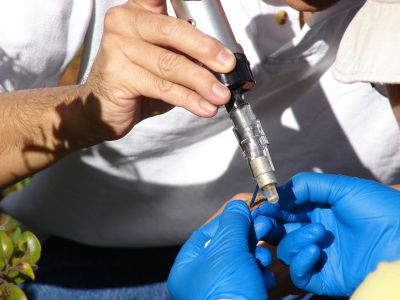Biomanufacturing involves converting biological resources into products
like biopharmaceuticals, enzymes, biofuels and vaccines. A critical and
expensive step is recovering highly pure samples efficiently from the
biological source.
The EU-funded
INTENSO
project was set up to identify bottlenecks in these downstream
processing methods, and to find solutions applicable to a wide range of
products. Researchers are concentrating on bioproducts that form part of
most industrial research and development pipelines in order to reduce
inefficiencies and costs.
They placed emphasis on protein purification from cell or
fermentation cultures, developing techniques to separate or capture
desired proteins from other cell components. These techniques are
economical, can be scaled up and may be applied to several fields,
including the recovery of biopharmaceuticals, environmental remediation
and enzyme purification.
Another focus point is the capture of large molecules such as virus
particles. These have traditionally been hard to purify, but INTENSO
researchers are investigating two potential methods.
The first involves separating molecules based on size using porous
rod structures known as monolithic columns. The second, earmarked for
vaccine production, makes use of disposable cartridges to which large
molecules are adsorbed directly from crude extracts.
For these technologies to have a sustainable effect on all forms of
biotechnology, the INTENSO team will factor in economic, environmental
and social impacts. They will consider legal constraints, government
policies, operating costs and profitability, as well as the effects on
the environment and the technology's end users.

